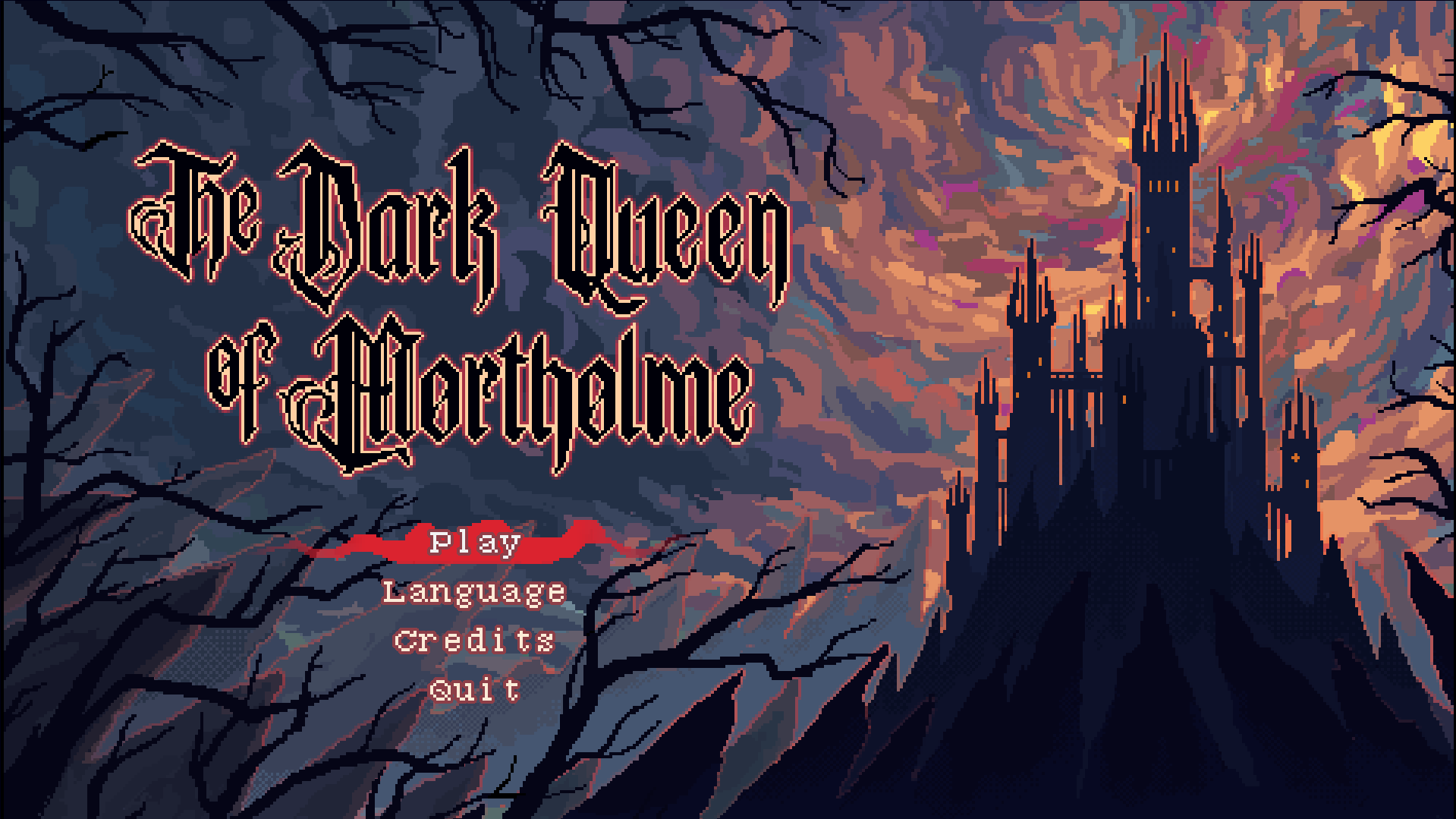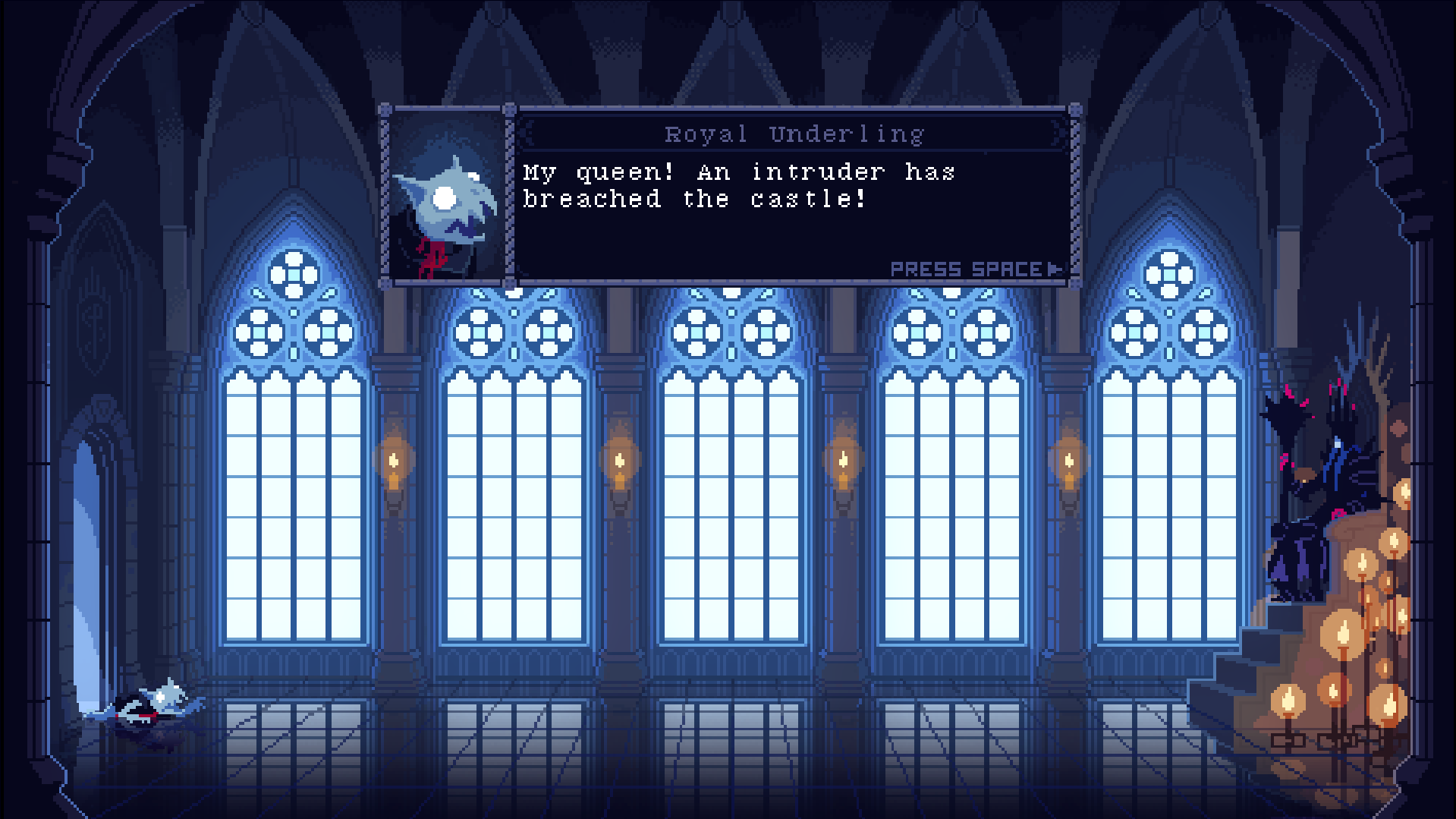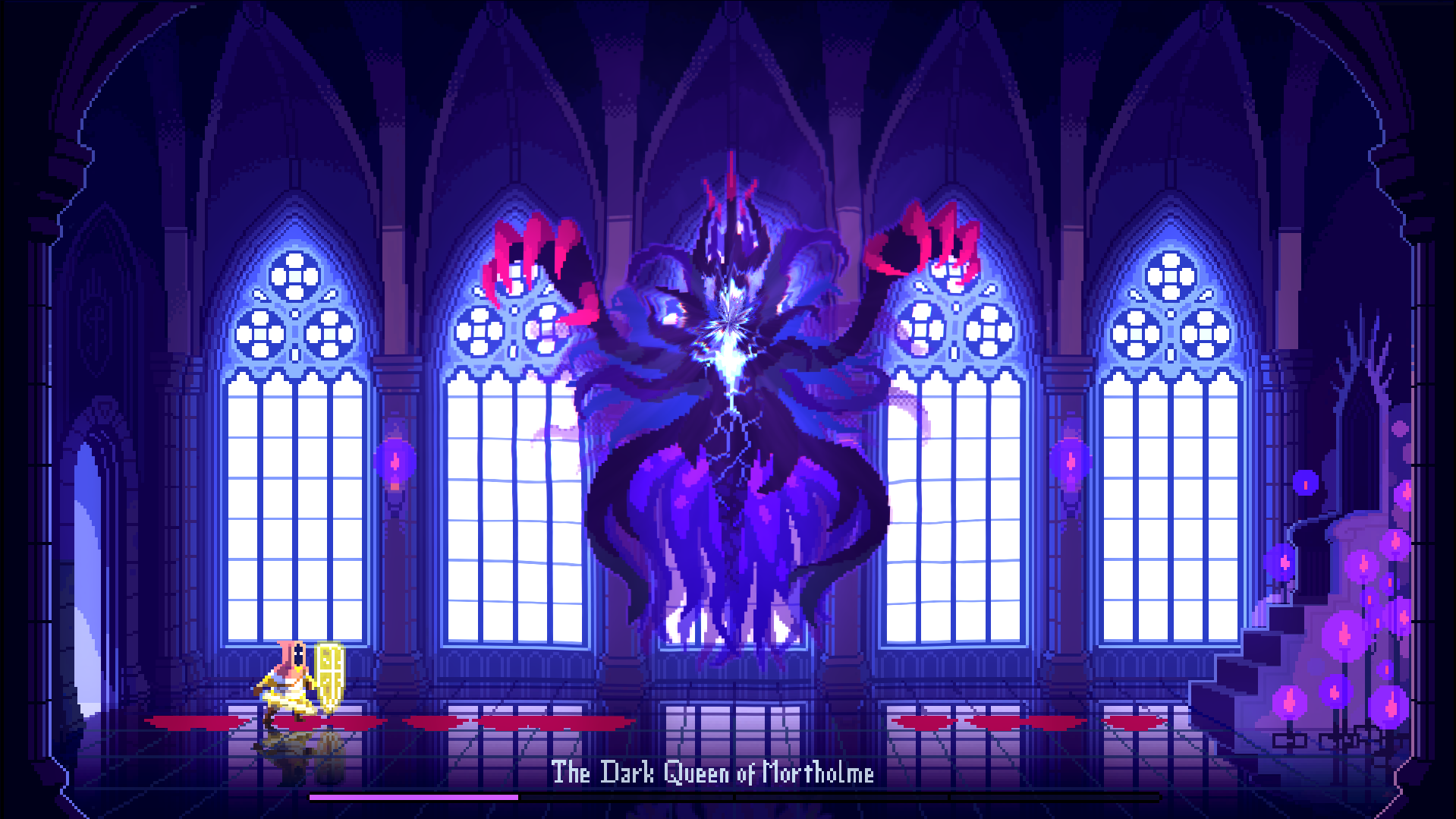Indie Game Club Issue 7: The Dark Queen of Mortholme
Conversations with a hero

Hi all, and welcome back to Indie Game Club! This month, we are taking a look at an indie title called The Dark Queen of Mortholme, created by Mosu. If you want to check out this game, you can either get it for free on the creator's itch page or support Mosu by purchasing the game on Steam.
Next month, we voted on a game that is not an indie game; however, it is a free game that may deserve a bit of a spotlight. We will be playing and giving a first impression of The Elder Scrolls II: Daggerfall by Bethesda Softworks. Normally, this column is meant to highlight independently published games that were not made to generate any revenue, whether that be a student project or a proof of concept. This exception is being made to show that game preservation (while still a very Bethesda move to just let fans keep the game alive) can be done by a large developer by offering game licenses for free on titles that no longer hold the public eye. If you want to experience Daggerfall alongside me, you can play the game this month by downloading it for free on its Steam page.
Without further ado, my impressions of The Dark Queen of Mortholme.

Nathan Kelly
The Dark Queen of Mortholme is a concise and insightful experience that explores success and failure. The brilliant telling of the encounters is what you will likely take away from the game; the actual gameplay is simply an amplification of its point. It’s done expertly; in a few somber conversations, I was able to feel the motivations of both characters even though they weren’t able to say exactly what those motivations were.
This game has you control the aforementioned Dark Queen of Mortholme. It succeeds in making the experience replicate becoming a boss fight in an action game. You simply take your throne, waiting for the hero of the story to once again attempt to slay you. You are given a few combat abilities that remain stagnant as the hero grows in ability and skill. The game asks you to engage in combat; however, the fights are clearly only a segue to cause the hero and the Dark Queen to connect and share dialogue, bantering on the cycle they've created.
Something I didn’t see coming with this one was how effective the boss-to-hero swap could be for the game's storytelling. There was a lot of tension in trying to stay victorious in the face of the hero's emerging abilities. When, finally, the hero was able to strike down the dark Queen, there was catharsis and release in that. I’m fairly certain that each fight is heavily scripted, but there was still a challenge in each one, and playing against an opponent that learned how to play around your limited moves became stressful at each major junction.

I don’t necessarily relate to the hero and their mindset of skill growth. I’ve always preferred challenges of strategy and preparation over skill-based challenges. But talking with the hero got me to understand that mentality just a bit more. Because what we share in common is the feeling of success after toppling a challenge stacked heavily against us. To know that there is always a way to victory for those committed to learning or practicing.
While this game is mostly an imagining of someone's various attempts at clearing a Dark Souls boss, it becomes a little more than that. A story told in a quick embrace that no one else witnesses or the lack of an answer to a probing question says more about these characters than any detailed dialogue could, and it’s a testament to the author's brilliant writing.
This is an excellent hidden gem that will be most appreciated by players scouring Steam and itch for a quick indie fix after a long day. Maybe it even shows a proof of concept for how video games can throw a simple modern convention on its head to elevate its narrative.

